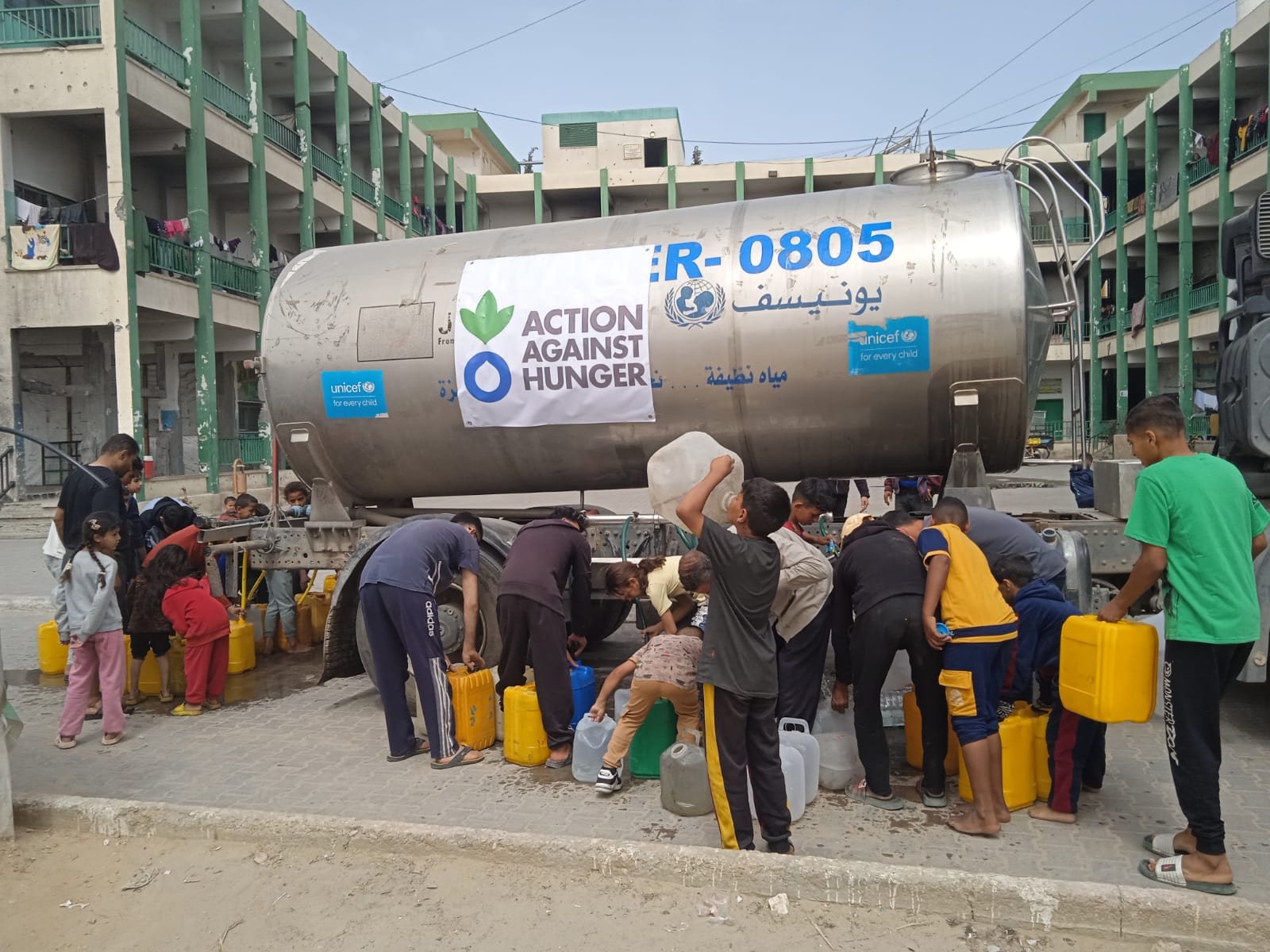Gaza is facing an unprecedented humanitarian crisis, with a severe fuel shortage set to cripple access to clean drinking water across the Strip in several southern areas, particularly Khan Younis, where 96% of the daily water supply is at immanent risk of disappearing.
Latest reports from Action Against Hunger teams indicate a shortfall of more than a 61% drop in the daily distribution of water by public providers and an 85% decline from private distributors. At least 78,000 people in the south could lose access to clean water in the coming days.
Since the conflict began, 89% of Gaza’s water and sanitation infrastructure has been damaged or destroyed, including 238 water wells and key segments of the Mekerot pipeline. The impacts on desalination plants, water wells and pumping stations have reduced water production to less than 58% of pre-crisis levels, cutting off safe drinking water to 90% of Gaza’s population.
If fuel reserves cannot be accessed, an estimated 122 municipal facilities, including wells and sewage pumping stations, will run out of fuel by the end of June, impacting support for one million people.
Without fuel, all humanitarian infrastructure and service delivery cannot function, and thousands of people are left without access to clean water.
Fuel is critical for sustaining basic humanitarian operations:
- Water treatment plants need 10,000 litres of fuel per day to keep running
- A humanitarian organisation distributing water needs 260 litres of fuel per day
- A local company that distributes water in the central and southern area needs more than 440 litres per day to operate.
Unrestricted humanitarian access, to fuel reserves, crossing and communities in need, is urgently required to prevent a major collapse in essential services.
Despite these constraints, Action Against Hunger continues to operate over 100 water trucking points in Gaza City, Deir el Balah and the south, while all points in northern Gaza are currently under movement orders and movement restrictions continue to affect operations.
We continue to support health centres and IDP camps with nutrition activities, hygiene promotion, cash assistance for households, as well as the provision of food in collaboration with community kitchens.
Although we continue to remove solid waste, our teams have observed a marked decrease in the amount of waste produced. This is partly due to people retaining waste to burn as fuel, an unsafe and toxic practice that testifies to the increasing inaccessibility and scarcity across the Strip.


